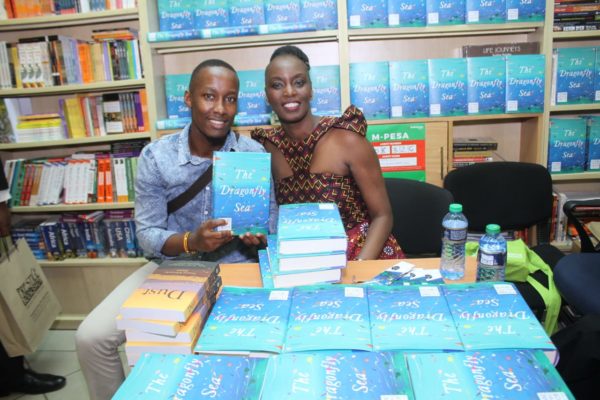
By Shingai Kagunda
Photos by Prestige Bookshop.
On 1 March 2019, Yvonne Adhiambo Owuor launched her second novel, The Dragonfly Sea, for the first time. She honoured us by doing so at Prestige Bookshop with an open audience and a mini panel discussion. Nairobi was not prepared for the explosive event that took place inside our little bookshop at the end of Mama Ngina Street.
By 4:30 p.m., people were in our bookshop with the most enthusiastic expressions on their faces. We were all ready, waiting, expectant. Voices could be heard outside and inside, excited chatter. The air was electric with anticipation.
Oyunga Pala began the evening by bringing all the guests together with his deep vibrato. Introductions followed. Abubakar Zein gave a beautiful speech in honour of a book he said is “a journey of liberation.” He spoke of our history and collective memory. “The narratives we have been fed,” he said, “robbed us of our memory and thus our imagination.” The Dragonfly Sea, he said, is a call to remember and to imagine. When we remember the truth over the narrative we were fed by oppressors, we begin to liberate ourselves. The book is a step towards the liberation that comes from telling our own stories. “If you read this book and you get stuck, then you are reading it the right way,” he said—an echo of the notion that remembering truth is not easy. “It offers space for reflection, conversation, imagination, and liberation.”
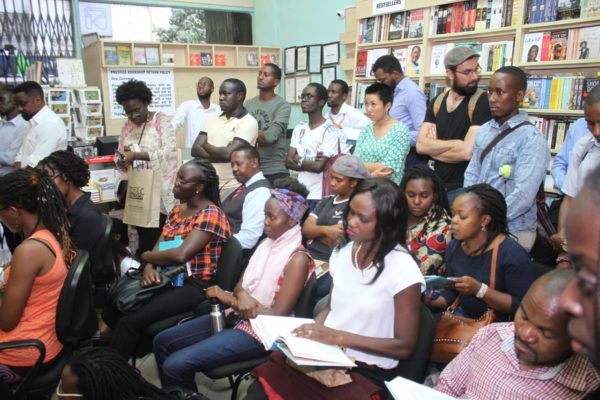
Professor Mohammed Bakari took up from where Abubakar Zein ended by starting with a joke: “I would like to ask Yvonne, as President Obama was accused, whether she is crypto Muslim?” This was greeted by laughter. He then went on to praise Yvonne’s grasp of Swahili culture and Islamic ideologies without bias. She has written outside of her immediate context, he said, and this is important. “All civilizations are results of the impact of other civilizations,” he reminded us. “There is nothing like a pure ethnicity or culture. This idea is a fragment of our imagination. The history of humanity is in essence the history of migration.”
As a Luo woman telling a story largely based on Swahili culture, he said, Yvonne has written intertextually. There is no singular new narrative, after all, and new texts are written by old texts just as new cultures are expounded upon by old cultures. The idea that Chinese, Arabian, and Swahili influences, among others, are all interconnected and build upon each other to tell several stories with a single thread binding them is genius and revolutionary—and even more so because Yvonne tells the story from multiple perspectives, through different worldviews, and still keeps it balanced, giving each vantage the honour, space, and time it deserves. “This book,” he said, “is truly unprecedented.”
Taking advantage of the subtle shift in the atmosphere, Aleya Kassam stepped in to do a beautiful reading of a poem by Mwana Kpona Binti Msham, adapted by Deidre Lashgari:
Daughter, take this amulet,
tie it with cord and caring.
I’ll make you a chain of coral and pearl
to glow on your neck. I’ll dress you nobly.
A gold clasp, too – fine without flaw to keep with you always.
When you bathe, sprinkle perfume and weave your hair in braids,
string jasmine for the counterpane.
Wear your clothes like a bride,
for your feet anklets, bracelets for your arms.
Don’t forget rosewater;
don’t forget henna for the palms of your hands.
It was a soft tribute with considerable impact. By the time Yvonne got up to speak and read from the book, the room was silent and eager to hear her heart.
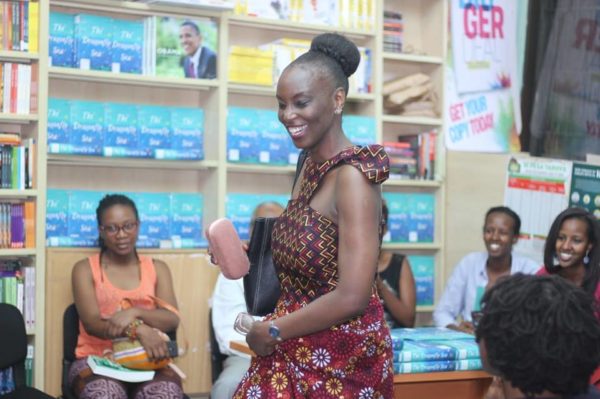
After thanking Ahmed of Prestige Bookshop for organizing the event, Yvonne concluded by stating: “I’ve always wanted my work to start here. This is home. . . . And quite frankly, I write for my people first.”
Although The Dragonfly Sea took on a life of its own, the original inspiration for the novel is a historical event. Six hundred years ago on the Swahili Seas, commander Zheng He’s ship capsized during an exploration trip and roughly twenty Chinese survivors swam to the Lamu Archipelago shores. With no way home, they intermarried with Swahili women, took up the Islamic faith, and settled on the Islands. Centuries later, in 2005, a young girl, Mwamaka Sharifu, who is a resident of Pate Island, is taken to China on a scholarship—a symbolic return for her.
Yvonne Adhiambo Owuor’s The Dragonfly Sea can be bought at Prestige Bookshop for 2,890 Shilling.
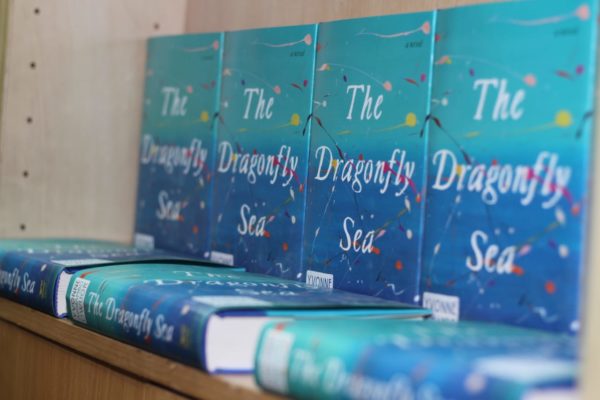
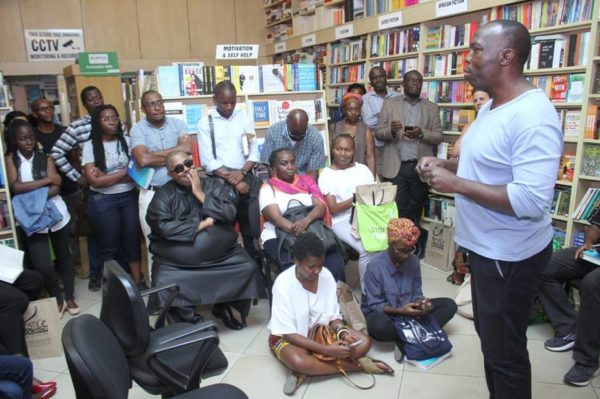
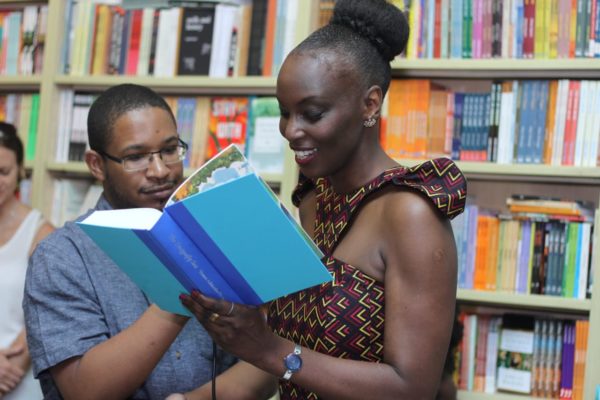
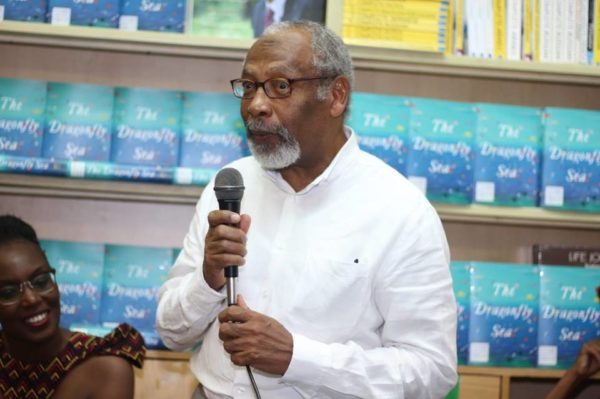
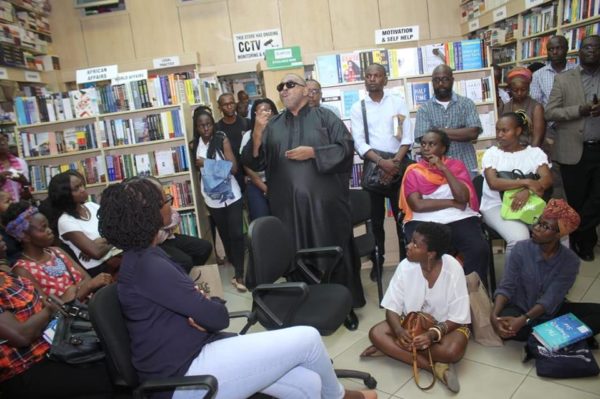
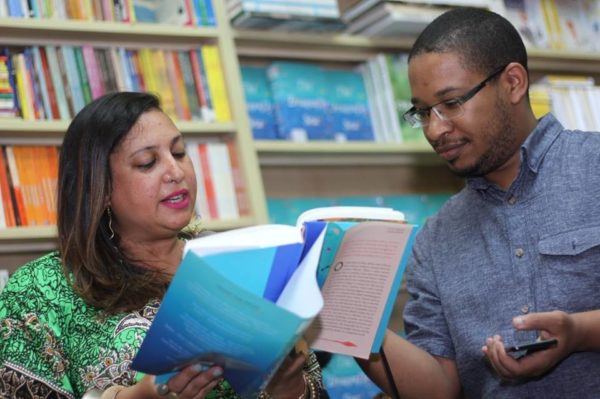








COMMENTS -
Reader Interactions